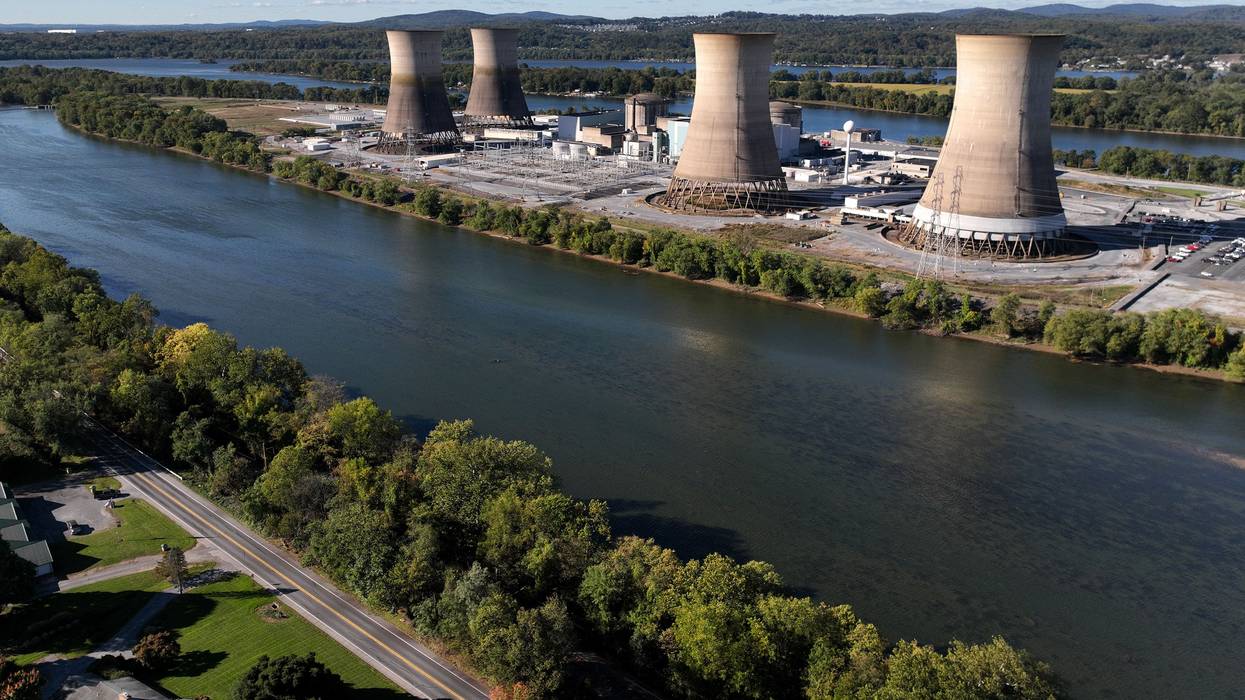While Israel has continued to fire missiles at Iran in recent days and Iran has responded with attacks on Israel, there is now a threat that the U.S. will be actively drawn into the war.
Does Iran have the same right to bomb Israel because it secretly acquired nuclear weapons long ago, did not sign the Nuclear Non-Proliferation Treaty, and does not allow inspectors, unlike Iran?
At the same time, Tehran is being blamed for the escalation of the conflict. According to the G7, Iran is the real threat and danger to the region and in Western countries it is said that Israel was forced to carry out the "preventive strikes."
Israel's Self-Defense
But the question is whether Iran poses any threat to Israel and the region at all. What is behind the Western obsession with Tehran as the hostile troublemaker in the Middle East?
Since the outbreak of the Gaza war, Tel Aviv has attacked Iran and Iranian facilities several times. In April 2024, the Iranian embassy in Damascus, Syria, was bombed. At the end of July, Israel directly attacked the Iranian capital Tehran with a targeted strike against the political leader of Hamas, Ismail Haniyeh.
Under international law, these attacks constitute illegal acts of aggression. The reason for this is obvious. The use of force between states is prohibited under the United Nations Charter and is only legitimate within extremely narrow limits. Only defense against an imminent, ongoing attack from outside that can only be repelled by military means is permitted.
Preventive Strikes
However, since there was no ongoing or imminent attack by Tehran that Israel was defending itself against, the attack is justified by Israel and the West claiming that Iran was on the verge of acquiring nuclear weapons. Hence, it was a preventive strike, they say.
German Chancellor Friedrich Merz said in an interview at the G7 summit that he believes Israeli Prime Minister Benjamin Netanyahu that there had been an emergency situation to which Israel responded with the right to self-defense. Neither Merz nor Netanyahu explained what this emergency situation was based on.
All Israeli attacks against Iran are therefore illegal under international law and, moreover, unprovoked.
However, the justification that Iran was in the process of producing nuclear weapons is worthless. Even if this were the case, it is not a legitimate reason for war under the U.N. Charter—quite apart from the fact that the Netanyahu government's bombings sabotaged Washington's nuclear negotiations with Tehran.
Or does Iran have the same right to bomb Israel because it secretly acquired nuclear weapons long ago, did not sign the Nuclear Non-Proliferation Treaty, and does not allow inspectors, unlike Iran?
Secret Services: No Nuclear Weapons Program
But the statement is not even factually correct. According to Israeli political analyst Ori Goldberg, secret services worldwide, including those of the U.S. and Israel's Mossad, continue to see no nuclear threat from Iran. For instance, the threat assessment by Tulsi Gabbard, director of National Intelligence of the United States, on March 26, states:
The IC [Intelligence Community] continues to assess that Iran is not building a nuclear weapon and Supreme Leader Khomeini has not authorized the nuclear weapons program that he suspended in 2003.
Thus, since the 1990s, the fatwa against weapons of mass destruction, which includes the ban on nuclear weapons, has continued to apply in Iran. This is also in line with the assessments of the International Atomic Energy Agency (IAEA), which recently criticized Iran's violations of the Nuclear Non-Proliferation Treaty but was still unable to detect a nuclear weapons program in the country.
Unprovoked Aggression
Contrary to repeated claims, U.S. intelligence agencies also believe that Iran is not only not seeking to acquire a nuclear weapon, but is also up to three years away from being able to manufacture such a weapon and deliver it to a target of its choice.
All Israeli attacks against Iran are therefore illegal under international law and, moreover, unprovoked. Remember the war in Ukraine. There, it has been repeatedly emphasized in the West that Russia started the war "unprovoked."
In the case of Israel, this term is now absent from debates in Europe and the U.S. Instead, Iran is counterfactually accused of being responsible for Israel's attacks.
History of the Iranian Threat
The narrative of an Iranian threat has a long history. For over 40 years, since the 1979 revolution and the overthrow of the unpopular, pro-Western Shah government, the U.S. and Israel in particular have seen the country as a threat. This has to do with the fact that the resource-rich state with a population of today over 90 million people not only has become independent from the West, but also turned against external interference in the region as a major regional power.
It sided with the Palestinians against Israel's occupation and apartheid policies and its prevention of a Palestinian state, as well as with Hezbollah in Lebanon and the Houthis in Yemen, who were defending themselves against acts of aggression by Israel and the Gulf states, all with U.S. support.
In the end, Iran is primarily concerned with its own national security, which dominates its foreign and military agenda.
In recent decades, Iran's stance in international relations has been shaped by a whole series of experiences. These range from the Iran-Iraq War of the 1980s to the U.S. policy of containment, the 2003 invasion of Iraq, and Tehran's calculated support for the occupation of Baghdad as revenge for its earlier defeat.
Iran's Defensive Strategy
Despite all the rhetoric spread in the United States and Europe, it is clear to everyone that Tehran is not pursuing an aggressive, offensive agenda in the region.
As early as 2010, a Pentagon report to the U.S. Congress on Iran's military strength stated that "Iran's security strategy is based first on deterring an attack." It is just not capable of anything more. "Iran's military strategy is designed to defend against external or 'hard' threats from the United States and Israel."
This is also evident in its military programs, including its focus on infantry units at the borders, according to the Pentagon report. The defensive military doctrine is "designed to slow an invasion and force a diplomatic solution to hostilities."
The U.S. Department of Defense told the U.S. Congress that the focus is on deterring acts of aggression. This also includes the possibility that the country could acquire nuclear weapons.
At the time, the Pentagon emphasized Iran's low defense spending compared with the standard in the region. Today, in 2024, Israel's military budget, including U.S. aid, stands at around $46.5 billion.
In comparison, Iran, which is 10 times larger, spends only around $7.9 billion, with a downward trend due to the sanctions, while the U.S. has ended up with astronomical military spending of around $1 trillion. So much for the balance of power.
Deterrence Instead of Attacking
More recent security studies also emphasize that Iran continues to pursue a defensive strategy, albeit with a stronger forward defense agenda in recent years, as evidenced by its support for the Lebanese Hezbollah, Iraqi groups, and the Yemeni Houthis. Security expert Matthew McInnis, a former U.S. deputy special representative for Iran at the State Department, wrote:
The Iranian military is still dominated by defensive doctrines oriented around four primary objectives: securing the regime (or protecting the government from subversion and instability); territorial defense; demonstrative deterrence (or displays of force); and retaliatory deterrence (or a "threat in response to threat"). The centerpiece of Iran's deterrence strategy, retaliatory deterrence, aims to convince an adversary to refrain from or quickly deescalate conflict through the threat of retaliatory action, such as terrorist, missile, or cyber attacks.
Vali Nasr, professor of International Affairs and Middle East Studies at the Johns Hopkins School in Washington, D.C., former adviser to the U.S. State Department, and one of the renowned Iran experts in the U.S., explains that Western politicians have a misunderstanding of the Iranian approach.
Logic of Survival
It is not so much ideological or religious, but rather calculated and pragmatic. Iranian foreign policy is dominated by a logic of survival and the wounds of history.
Nasr speaks of a "strategy of resistance" with which Tehran is trying to sit out and wear down U.S. pressure. The leadership has repeatedly demonstrated its willingness to seize diplomatic opportunities, promote regional détente, and act with calculated restraint while assuming a siege mentality.
Nasr sees Iran's reconciliation with Saudi Arabia in 2023, brokered by Beijing; its partnerships with regional proxies; and its strengthened relations with Russia and China as attempts to gain breathing space and secure pragmatic safeguards against pressure from the West.
In the end, Iran is primarily concerned with its own national security, which dominates its foreign and military agenda. In Nasr's new book, which has just been published, entitled Iran's Grand Strategy: A Political History, the Middle East expert argues that "Iran is the enemy the West created." For the book, he conducted numerous interviews with Iranian insiders.
Western Opinion Making
Despite Iran's widely acknowledged defensive and reactive strategy in security circles, Tehran continues to be regarded by the political public in the U.S. and Europe as the greatest threat to the region and to Israel.
Since there is no military threat, the West is focusing on rhetorical threats made by the Iranian leadership against the "Zionist regime" and the U.S. On the other hand, they refer to Iran's intention to develop nuclear weapons to wipe out Israel.
Double Standards
As for Iranian rhetoric, it hardly exceeds what is regularly announced by the other side. Not only Israel, but also the U.S. government has repeatedly threatened Iran with attacks and even nuclear strikes.
During the latest negotiations, U.S. President Donald Trump warned that if Tehran did not completely abandon its nuclear program, including for civilian use, there would be "all hell to pay," while "all options are on the table"—which is an implicit threat of a nuclear strike. All in defiance of international law.
What worries the West, especially the U.S., most is that Iran is going its own way, resisting Washington's interventions and exerting influence on other states, so that the U.S. could lose its dominance in the oil- and gas-rich region.
Western and Israeli calls for regime change in Iran and the assassination of Iranian military personnel and nuclear scientists by Washington and Tel Aviv are also frequently used means of destabilizing the political leadership in Tehran.
In Iran, it is well known that regime change by the West is also a historical reality. In 1953, the U.S. and Britain organized a military coup to overthrow Iran's parliamentary government and install the dictatorship of the Shah, which was responsible for one of the worst human rights records in the world.
Western-Israeli Aggression
In contrast to Iran, the U.S., NATO allies, and Israel have also behaved aggressively in the region for decades with military invasions, political assassination programs, and threats.
These include the various Lebanon wars and Israel's 20-year occupation of southern Lebanon with U.S. support; the U.S. wars in Afghanistan and Iraq from 2001 and 2003, respectively; drone and assassination programs (2,700 illegal political killings in 70 years by Israel alone, according to an analysis by an Israeli journalist). In addition there was the brutal war in Yemen waged by the Gulf Alliance, supported with weapons from the West.
Iran, on the other hand, has not behaved aggressively for hundreds of years, invading and occupying other countries. The only aggressive act Iran has committed was in the 1970s under the Shah, supported by the U.S. At that time, three Arab islands were occupied.
The Real Threat Posed by Iran
So when the West talks about the Iranian threat, it is not a military threat. There are other reasons why Tehran is nevertheless perceived as a threat from a Western and Israeli perspective.
What worries the West, especially the U.S., most is that Iran is going its own way, resisting Washington's interventions and exerting influence on other states, so that the U.S. could lose its dominance in the oil- and gas-rich region.
It is no coincidence that Iran has some of the world's largest proven oil and natural gas reserves and ranks third in the world in oil reserves and second in natural gas reserves.
Tehran Does Not Want Nuclear Weapons
As for the threat posed by Iranian nuclear weapons, Iran has repeatedly made it clear that it does not want to develop nuclear weapons. When the Joint Comprehensive Plan of Action was adopted in Vienna in 2015, making Iran a nuclear-weapon-free zone, Iranian Foreign Minister Javad Zarif said, "Now it is high time that we expand that zone to encompass the entire Middle East." Israel, the nuclear power, must follow suit.
The U.S. attacked Iraq, not North Korea, as part of the so called "axis of evil." That's because North Korea can deter a possible U.S. invasion with nuclear weapons.
Howekver, Trump unilaterally withdrew from the Iran agreement, which was concluded under U.S. President Barack Obama and successfully limited the enrichment of weapons-grade material in exchange for sanctions relief, during his first term in office in 2018, escalating the conflict.
The nuclear-free zone in the Middle East also continues to await implementation, although it is supported by Iran, Egypt, and the Conference of Non-Aligned States. But the U.S. is blocking it in order not to jeopardize Israel's nuclear arsenal.
Pressure on Tehran
Trump initially resumed negotiations with Iran in his second term. But at the same time, he demanded that Tehran end all uranium enrichment, which is unacceptable to the country because it would also rule out the civilian use of nuclear power for Iran. Experts called Trump's ultimatum a dangerous blackmailing that would ultimately lead to war, which is what happened.
As already mentioned, the U.S. military and intelligence services are discussing a possible Iranian nuclear weapons program, which is currently not believed to exist, as a defensive deterrent. Iran would only consider such a program if Tehran were forced to do so by an escalating threat.
Nuclear Weapons as a Deterrent
Accordingly, the conservative Israeli military historian Martin Levi van Crefeld wrote in the International Herald Tribune after the start of the Iraq War in 2004 in an article entitled "Sharon on the Warpath: Is Israel Planning to Attack Iran?":
Iran is now surrounded by American forces on all sides—in the Central Asian republics to the north, Afghanistan to the east, the Gulf to the south, and Iraq to the west… Wherever U.S. forces go, nuclear weapons go with them or can be made to follow in short order. The world has witnessed how the United States attacked Iraq for, as it turned out, no reason at all. Had the Iranians not tried to build nuclear weapons, they would be crazy.
Van Crefeld emphasizes that Iran is ruled by Islamic fundamentalists. But most commentators familiar with the country do not consider its government irrational. "Saddam Hussein attacked Iran, not the other way around; since then, Iran has been no more aggressive than most other countries."
And we should bear in mind: The U.S. attacked Iraq, not North Korea, as part of the so called "axis of evil." That's because North Korea can deter a possible U.S. invasion with nuclear weapons.
Israel's war against Iran with U.S. assistance and Washington's possible active entry into the hostilities could now give the leadership in Tehran a strong argument for finally acquiring nuclear weapons as a deterrent, which it does not really want.
Who Is Threatening Whom?
The threat posed by Iran is largely an invention of the West. The world's population, and especially those in the region, see the U.S. and Israel as the main sources of instability and a threat to world peace, not Iran. Militarily, the Iranian threat is virtually non-existent.
Certainly, no one wants Iran to have nuclear weapons. But the pursuit of nuclear weapons would ultimately be a response to Western and Israeli threats and acts of aggression, against which Tehran wants to have a deterrent.
A way to reduce the threat level would be for Israel to end its hostilities against other countries, which are contrary to international law; to renew the successful Iran deal; to create a nuclear-weapon-free zone in the Middle East (Israel would then have to give up its nuclear weapons); and to stop the genocidal Gaza War waged by the Netanyahu government, which is keeping Israel on a never-ending warpath.



